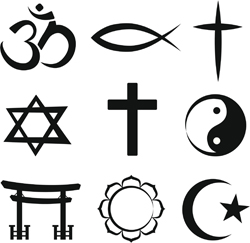A voice for minority religions
Religious freedom restrictions seem to be quite prevalent in European countries where Orthodoxy is the dominant religion. Whether or not this is something intrinsic or if it is related to historical or political factors is unclear. Seeking answers is important in a time of rapidly increasing religious diversity, in hope of decreasing instability and social unrest. PLUREL, an EU-funded project, generated knowledge on this situation. The work stems from the acknowledgement of limitations to religious freedoms in majority Orthodox settings. The study also covered the suggestion that pluralism and Orthodoxy may be contradictory in terms. Ground work was conducted in four European countries where Orthodoxy is the majority religion: Bulgaria, Greece, Romania and Russia. Between 25 and 30 interviews were conducted in each country, spanning the years from 2010 to 2013. Project members examined attitudes and practices of the religious majority in relation to minority group experiences. Additionally, the project worked to propose possible resolutions to problems via reform at both the national and European level. One of the main findings elucidates that there is a significant relationship between the Orthodox church national identity. This is a key factor regarding the freedoms and limitations of minority groups. Yet it is evident by the research that there is nothing in the dogma of Orthodoxy itself to frame such restrictions on the minority religion. This raised the question of where exactly such notions stem. Additional important factors that were found included the circumstances involved in moving from democratic to Communist rule. Social hostility against minority groups was shown to be more prominent in smaller communities. Also evident were the limitations caused by government interference in religious matters. Research analyses generated a plethora of information. This will be fruitful for future debates regarding plurality and the role of religion in a liberal democracy. Furthermore, the research can contribute to discussions within the context of the European Court of Human Rights.







